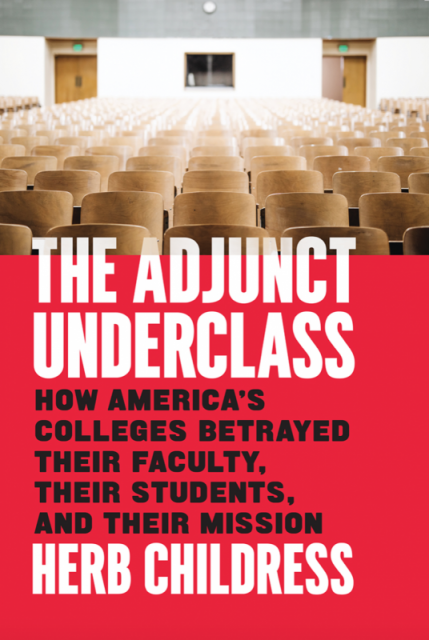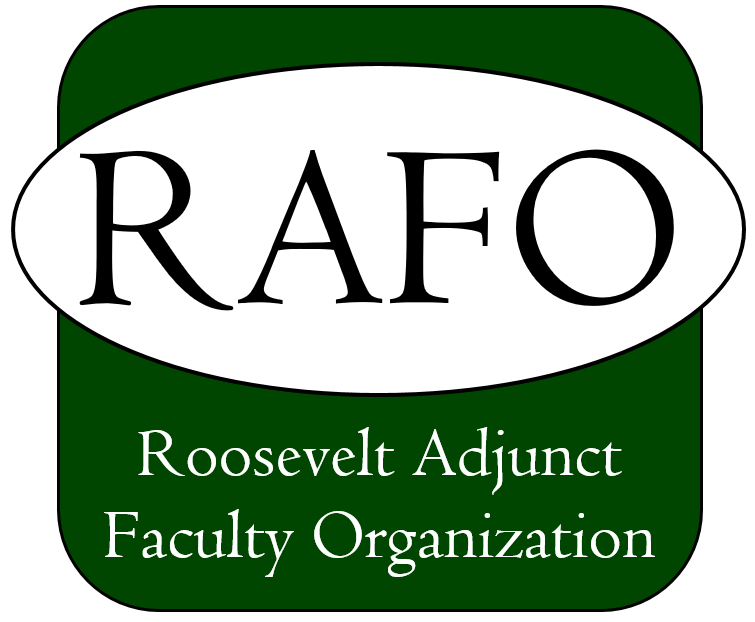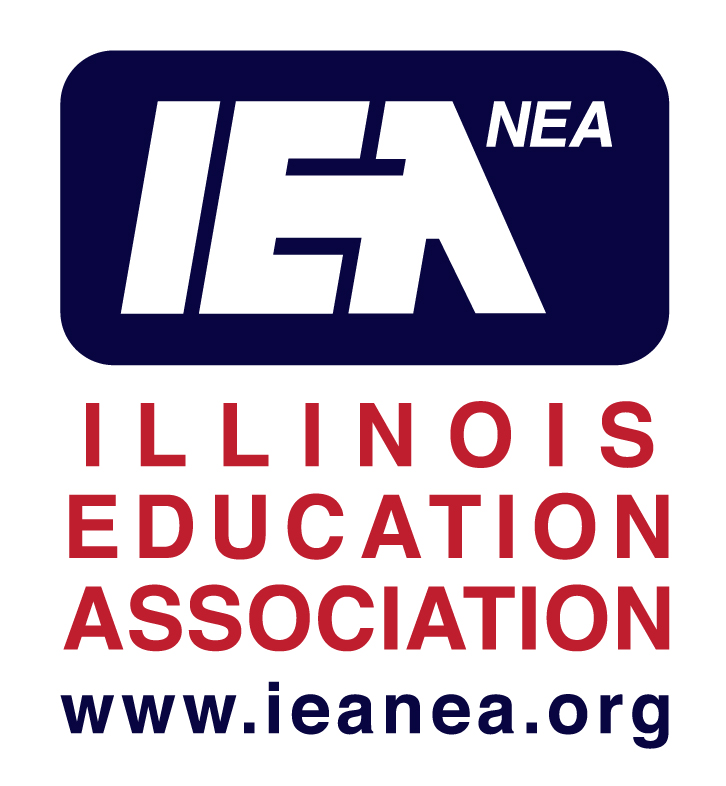
Welcome back to Roosevelt! We hope your first couple of days have been a smooth beginning to a successful semester. We have some news and opportunities that you may be interested in!
Opportunities for professional development:
- Writing on the Edge is coming up, and RAFO will reimburse registration costs for up to 10 full-dues-paying members who wish to attend. This conference is specifically for adjunct faculty and will take place Saturday, September 21, 2019 from 8 am – 4 pm at College of DuPage. The conference focuses on writing across the curriculum and invites other disciplines to join the conversation of how to increase learning for students no matter the subject matter. Email us at rafo @ rafo.org if you're interested.
- The Illinois Education Association's ONE Conference is coming up on October 4-5.
Opportunities to support RAFO
RAFO has some spaces for full-dues-paying members to get involved and support the union as we advocate for you. We need members to serve on our professional development, membership, or grievance committees. Please let us know if you're interested in becoming involved with the union.
Finally, RAFO is looking to profile some of our members in the upcoming academic year. Please email us (rafo @ rafo.org) and let us know about your professional accomplishments or nominate yourself or a fellow adjunct to be one of our adjunct feature blogs.
Have a great beginning of the semester, and please be sure to follow us on Facebook or Twitter to stay up-to-date on current events.
Starting immediately, Roosevelt University employees will use The Work Number® to obtain automated employment verifications. Additionally, income verifications will be available through The Work Number later in the year.
The Work Number from Equifax is a fast, secure way to provide proof of your employment or income. The Work Number simplifies the verification process and lets you share critical work/pay information through an online system that your verifiers can access 24 hours a day, 7 days a week.
Once the income verification launches later this year, Roosevelt University employees may also access one (1) free Employment Data Report (EDR) each year through www.theworknumber.com. The EDR lists complete historical employment and income information, as well as verifier requests for the past two years.
More details: https://inside.roosevelt.edu/spaces/52/human-resources/wiki/view/3130/employment-verification-through-the-work-number
There is a position open at Roosevelt for a Visiting Assistant Professor of Biology. If you fit the requirements, we encourage you to apply for this position.
Here is the link: Visiting Assistant Professor of Biology.
This book is timely and interesting--Read the full article here.
‘The Adjunct Underclass’
Herb Childress's new book is a painful, necessary read for anyone looking to understand or empathize with the costs -- human and otherwise -- of higher ed's gig economy.
By Colleen Flaherty
April 16, 2019
The human costs of academe’s festering adjunct problem tend to get lost against the scale of it. We know that the contracting higher education job market entails suffering. But what can be done when, by some estimates, 70 percent of professors are part-time? Every once in a while, though, a human take on the adjunct  issue cuts through the collective too-big-to-fix mentality. The Atlantic’s recent piece on the late historian Thea Hunter, “The Death of an Adjunct,” is one such take. Herb Childress’s new book, The Adjunct Underclass: How America’s Colleges Betrayed Their Faculty, Their Students and Their Mission (University of Chicago Press), is another.
issue cuts through the collective too-big-to-fix mentality. The Atlantic’s recent piece on the late historian Thea Hunter, “The Death of an Adjunct,” is one such take. Herb Childress’s new book, The Adjunct Underclass: How America’s Colleges Betrayed Their Faculty, Their Students and Their Mission (University of Chicago Press), is another.
Through interviews with adjuncts and his own story of working off the tenure track, Childress describes what happens not just to academics’ careers and teaching bandwidth but to their souls when they become workers in the academic pin factory. It’s not pretty. Among other analogies, Childress compares the dynamic to an abusive relationship, where dysfunction becomes the norm but the damage builds too often to breaking.
Still, it would be a mistake to describe Childress’s book as about human costs only. Part memoir, part manifesto, it’s also a rigorous, data-driven analysis of how we got here, why adjunctification hurts the academic enterprise and possible solutions. There’s a full appendix of charts, facts and figures. The mix makes for a book that anyone, novice to expert, can read.
Childress, who also wrote 2016’s The PhDictionary: A Glossary of Things You Don’t Know (but Should) About Doctoral and Faculty Life, recently participated in a Q&A with Inside Higher Ed. Read the full article here.
Page 18 of 31


